10+ English words that have Hungarian origins
English is a global language, there is no denying that, but over the course of its history, it has been influenced and impacted by many other languages and cultures, from French to German, from Greek and Latin to Spanish, but also Hungarian. Although the Hungarian language and culture did not impact English as much as some other languages, there are still some words in English that originate from the Central-Eastern European country of Hungary.
Magyarországom collected some of these words for you, and we tried to find sources (sometimes with added emphasis) to support their origin.
Itsy-bitsy
We should start with the outlier. Although it might not have a true etymological connection to the Hungarian phrase of the same meaning, as I could not find any truly reliable sources, the resemblance is uncanny. In Hungary, we use the phrase ‘icipici’, which not only looks very similar, but it sounds almost identical and has an almost identical meaning.
Coach
“Found in nearly all European languages since the 16th century; Spanish ‘coche’, Italian ‘cocchio’, German ‘kutsche’, Polish ‘kocz’, etc. All originate from the Hungarian ‘kocsi’, used in Hungary from the reign of King Matthias Corvinus, 1458–90.” – Oxford English Dictionary
‘Kocsi’ is an adjective, meaning ‘of Kocs /kɔtʃ/’, a place south of Komorn, between Raab and Buda, which was the Hungarian post town from the 15th century onwards. The full original name was ‘kocsi szekér’ i.e. ‘Kocs cart’, which was the name of a fast, light vehicle pulled by horses that later spread across Europe. Now, the word can be used to describe train passenger cars and types of buses as well.
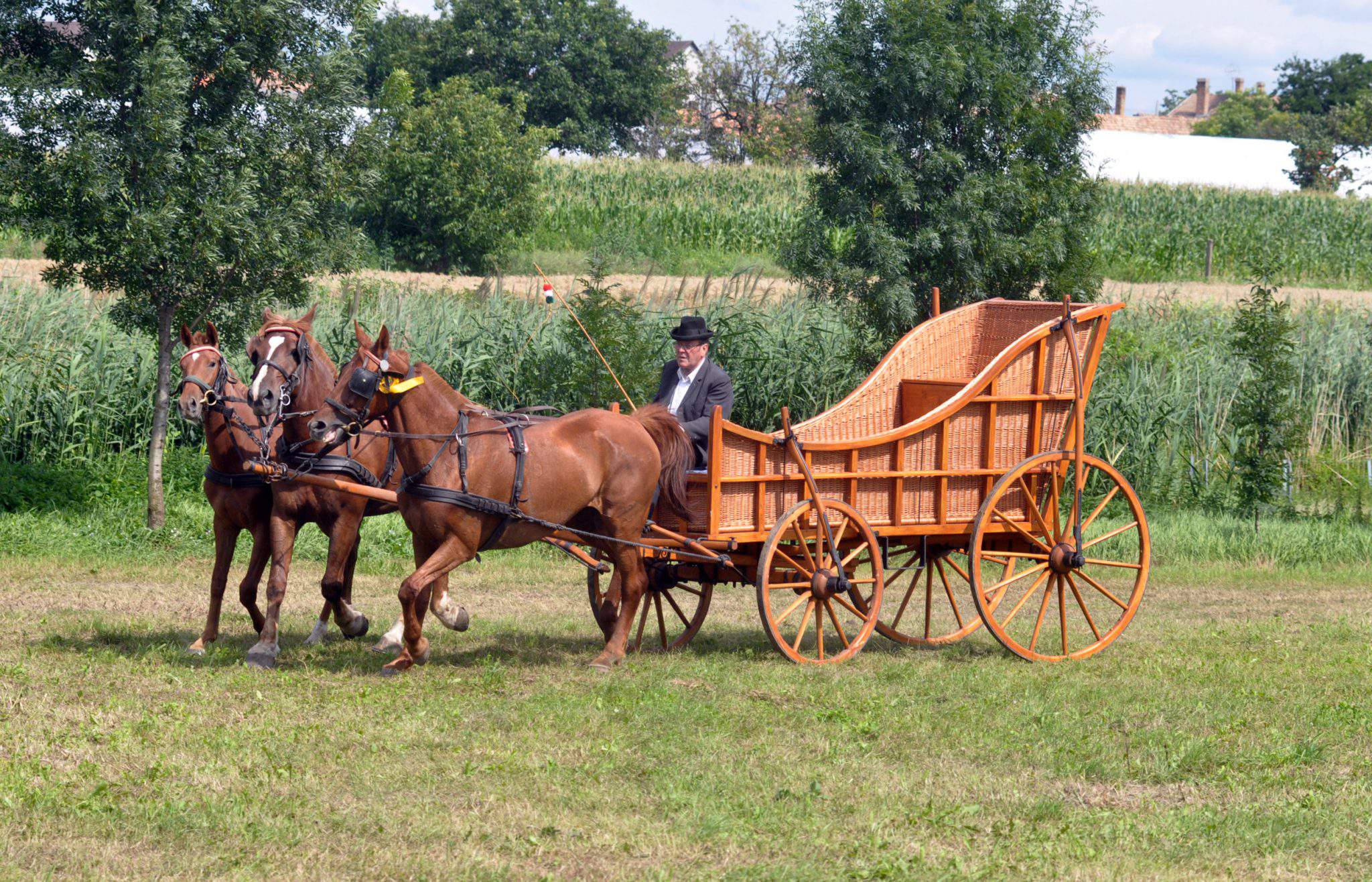
Read alsoA Hungarian word used worldwide: Kocsi
Biro
The ballpoint pen is widely referred to as a ‘biro’ in many countries, including the UK, Ireland, Australia, and Italy. Although the word is a registered trademark that comes from the name of its inventor, in some countries, it has become genericised.
László József Bíró was a Hungarian-Argentine inventor who patented the first commercially successful modern ballpoint pen. Bíró presented his idea at the Budapest International Fair in 1931 and patented the invention in Paris in 1938. During World War II, Bíró fled to Argentina. In 1943, he filed another patent, issued in the US as 2,390,636 Writing Instrument. In 1945, Marcel Bich bought the patent from Bíró for the pen, which soon became the main product of his BIC company. BIC has since sold more than 100 billion ballpoint pens worldwide.
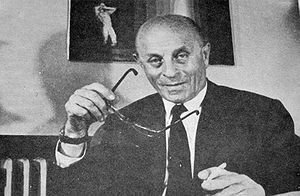
Read alsoWho invented the ballpoint pen? – Of course Hungarian: Laszlo Jozsef Biro
Goulash
This might be one of the most well-known and most commonly used words in English that originate from Hungary. It is not uncommon for foreigners to identify Hungarians with this dish. If you are abroad and say that you are Hungarian, the first thing that comes to mind for many people is ‘goulash’.
“It originates from Hungarian ‘gulyáshús’, from ‘gulyás’ (herdsman of ox) + ‘hús’ (meat). A beef or lamb soup originally made by herdsmen while on the fields.” – Online Etymology Dictionary
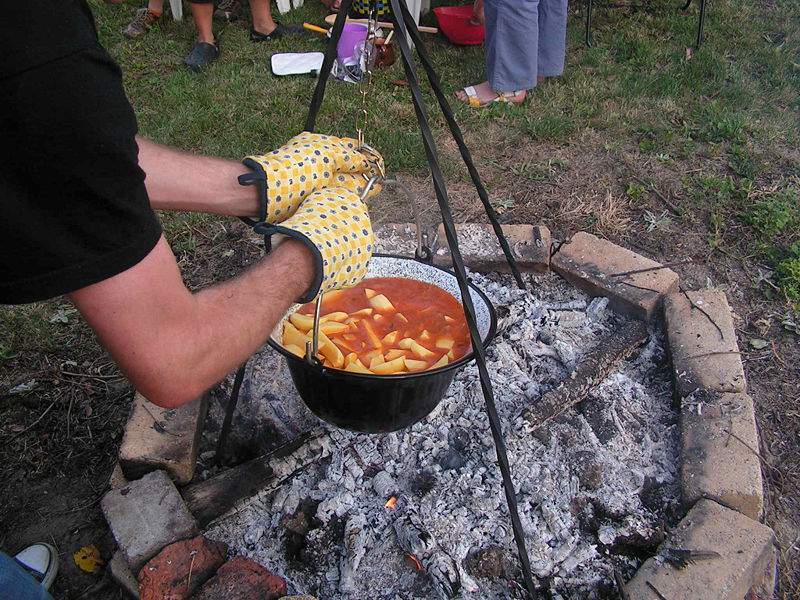
Read also3 Hungarian recipes for the traditional outdoor cooking, ‘bográcsozás’
Hussar
“It means light-cavalryman. The original Hussars were bodies of light horsemen organized in Hungary in the late 15th century, famed for courage and elaborate, semi-oriental dresses. They were widely imitated all over Europe (for example the Polish winged hussars), hence the spread of the word.” – Online Etymology Dictionary
Historically, the term in Hungarian derives from the cavalry of late medieval Hungary under Matthias Corvinus with mainly Serb warriors, but there are also other theories about its origin:
According to Webster’s Dictionary, the Hungarian ‘huszár’, originates from the medieval Serbian husar, meaning brigand (because early hussars’ shock troop tactics used against the Ottoman army resembled that of brigands; in modern Serbian, the meaning of ‘gusar’ is limited to sea pirate, more like ‘corsair’).
Another theory is that the term is an original Hungarian one, having nothing in common with the Serbian ‘gusar’. The hussars’ tactics and riding skills are characteristic of the early Hungarian warriors and were used by many ethnicities on the Eurasian steppe, like Huns, Avars, etc., and later by the Mongols and Tatars. This type of light cavalry was especially characteristic of the Hungarian armies, equipped with bows, arrows, spears, and sabres, and they later adopted the use of firearms.
Shako
“Also ‘chako’ is a cylindrical soldier’s hat with plume. It comes from the Hungarian ‘csákó’, short for ‘csákós süveg’ (peaked cap)”. – Online Etymology Dictionary
Originally, it would look similar to a hussar’s hat, but if you say the word ‘csákó’ in Hungary, many people, especially children, will associate the word with the simple hat you can fold from paper.
Sabre
“It is a type of single-edged sword, from French ‘sabre’ (heavy, curved sword) an alteration of ‘sable’, from German ‘Sabel’, ‘Säbel’, probably ultimately from Hungarian ‘szablya’ (saber), literally means a tool to cut with, from the verb ‘szabni’ (to cut or to tear).” – Online Etymology Dictionary
A sabre, also spelt as saber, depending on which side of the pond you are from, is a type of backsword with a curved blade associated with the light cavalry of the early modern and Napoleonic periods. Originally associated with Central-Eastern European cavalry, such as the hussars, the sabre became widespread in Western Europe a bit later. The predecessor of these weapons, the ‘proto-sabre’ (the Turko-Mongol sabre), had become the usual sidearm on the Eurasian steppes by the 9th century. The sabre probably arrived in Europe with the Magyars and Turks.
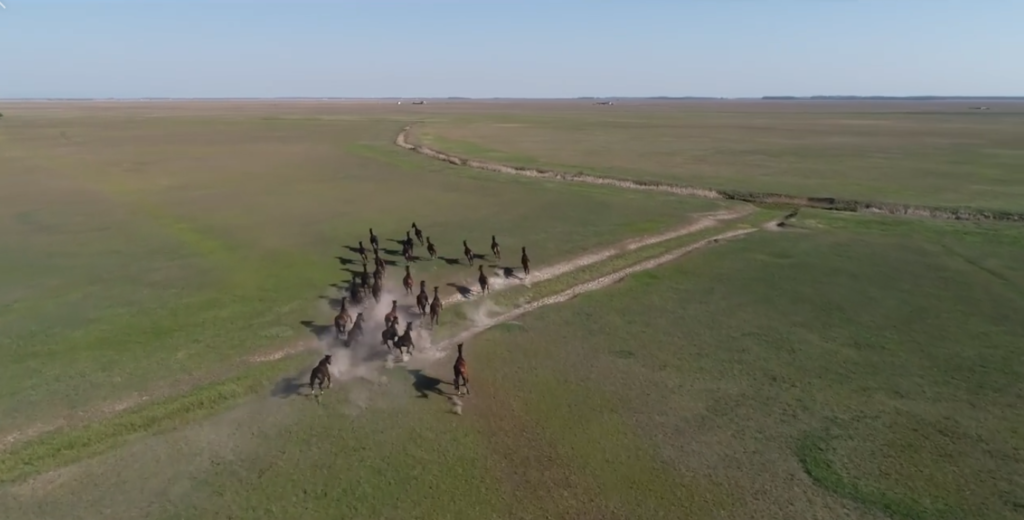
Photo: www.facebook.com/Hortobágy Nonprofit Kft.
Pusta
Pusta or Puszta is a Hungarian traditional landscape meaning “a large plain, a steppe; a flat treeless region.” – Oxford English Dictionary
Czárdás
‘Csárdás’, often seen as ‘czárdás’ or ‘csardas’, is a traditional Hungarian folk dance. The name is derived from ‘csárda’, an old Hungarian term for roadside tavern and restaurant. It originated in Hungary and was popularised by bands in Hungary as well as the neighbouring lands of Slovakia, Slovenia, Transylvania, etc.
Hungarian Dog Breeds
Hungarian dog breeds are referred to in English by their original Hungarian names. Vizsla might be the most widely known among these breeds, but all of them can be loyal companions.
- Puli: “More fully Hungarian Puli is a breed of large black, grey, or white sheepdog characterized by a long, thick coat with a corded appearance.” – Oxford English Dictionary
- Komondor: “Large, powerful, shaggy-coated white dogs of Hungarian origin that are used to guard sheep” – Merriam-Webster
- Kuvasz: “A large, white, long-coated Hungarian breed of dog used as a guard dog” – Oxford English Dictionary
- Vizsla: They are short-coated, golden-brown hunting dogs, specifically “pointers, with large pendant ears” – Oxford English Dictionary. They are robust but rather lightly built; they are lean dogs that have defined muscles.
- Pumi: “It is a medium-sized alert, intelligent, energetic, and agile Hungarian herding breed” – American Kennel Club
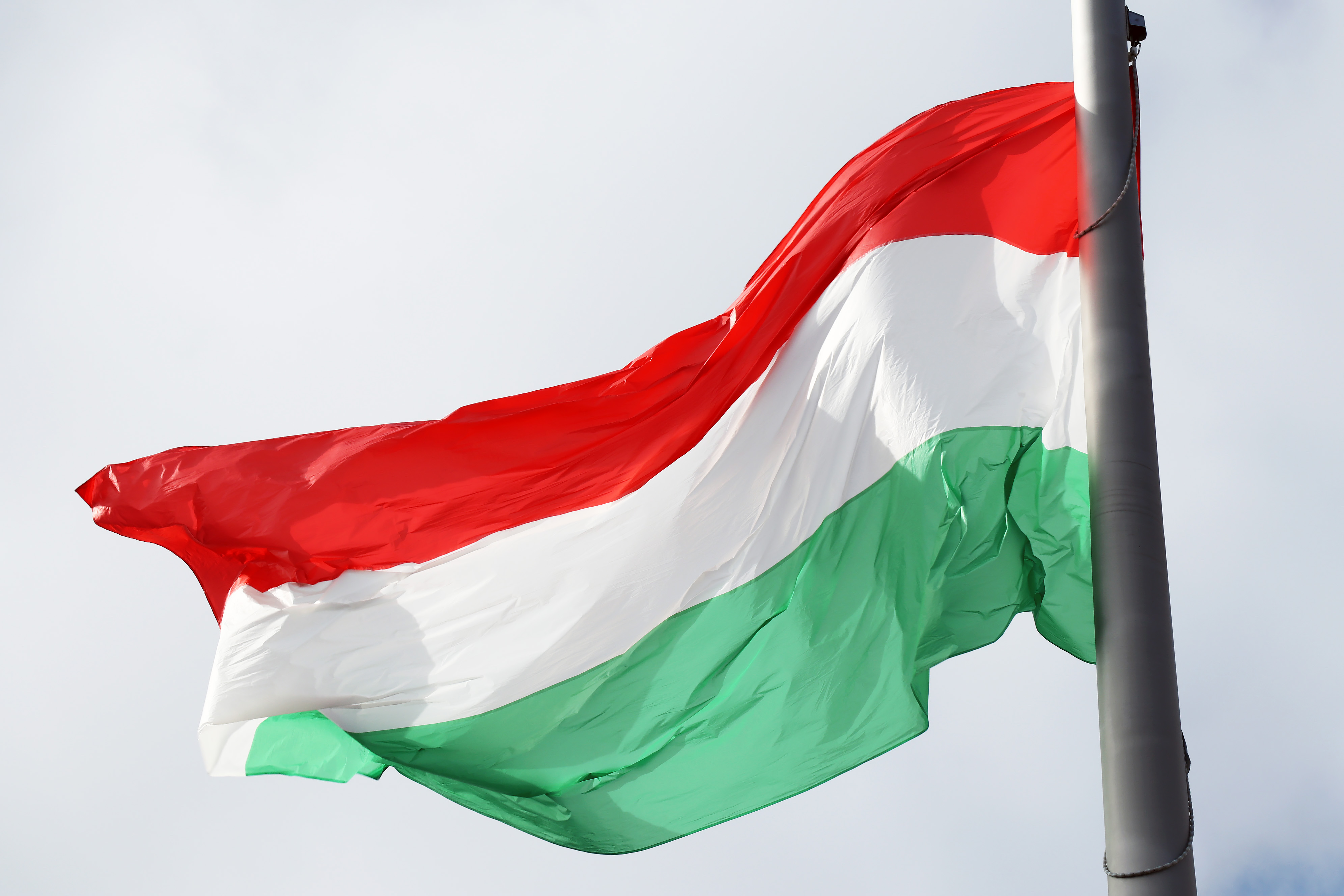
Read also10+ English words that have Hungarian origins, Part 2
Source: Magyarorszagom.hu, Daily News Hungary
please make a donation here
Hot news
Top Hungary news: Hungarian forint at breaking point, Miskolc Light Tram, Moscow, Ukraine’s border – 2 December, 2024
Opinion – The emerging warm Hungarian atom: a glimpse into the future
‘Egészségedre!’: Handy guide to toasting in Hungary
7 unforgettable landmarks in Europe, including a Hungarian treasure
Hungarian forint at breaking point: Near-historic low against pound sparks concern
Orbán cabinet: Hungarian households’ energy bills lowest in Europe





15 Comments
It is said that the word “Hello” is derived from the Magyar “hallom”. Legend goes that one of Alexander Graham Bell’s associates was Hungarian. He answered one of test calls on the telephone and said “I hear”. Hallom became hello. Probably not true, but a good story nonetheless!
Please correct the spelling of “kocsi szekér” as all other originating words are stated in their their correct Hungarian spelling.
About “csárdás”, it doesn’t really state what the word is used for in English just what its two sources of words are
About “gulyás”, I think additional information needs to e provided to highlight that this should be a soup because many foreigners are confused as to what it really is. Many think it a stew, in fact, a buffet I go to here in Budapest will point tourists at the pörkölt (stew) and tell them point blank that it is gulyás even though just a bit up from it there is the actual true gulyás and labelled so. Sad. Very sad.
It appears that the origin of Puszta is from the Slavic “pusztoj” or its derivatives, meaning empty, emptiness, desolate. But then, Hungarian is also a language that has many adopted words.
Paprika
What about the szia and see you?
Hello was from ‘holla’ or ‘hollo’ meaning to stop, pay attention. Nothing to do with Hungarian unless hallom has the same origins.
Very interesting on language words . Sitting here in South Africa a person doesn’t hear much about europe and especially about hungerian things so I love reading about it from the daily news Hungary. Keep it up.?
Hungarian dog breeds: …és a pumi?
What about the pumi dog?
Very interesting !!! Can you give some examples of English words in Hungarian laguagge,I heard some cases when in English word is added Hungarian suffix.
Like (potom) something like that?
Thanks
Andreas Toth, thank you for noticing, I corrected the mistake. It was from the Oxford English Dictionary and I just did not notice it. As for ‘csárdás’ it is the name of the dance and it is used for that in English as well, occasionally for other music with the same tempo. In some places, they use the original Hungarian spelling, but sometimes they use other versions.
About ‘gulyás’: Well, unfortunately, I cannot clear your confusion about it. When Hungarians speak about ‘gulyás’ it can either be a soup or a stew. It really depends on who makes it and for what occasion. The best way to avoid confusion, in my opinion, is – what we, Hungarians usually do anyway – to add the word soup or ‘leves’ after it. It would make it clear for everyone which one you would like to get. Some people make the broth very thick, just like a stew, some like it runnier, like a normal soup.
Well, the list was not comprehensive, there are some things I missed., I added ‘pumi’ to this list and I might try to find other English words that come from Hungarian or the other way around. 🙂
In Serbian we use Hungarian word “varosz” =varoš. Maybe is to Hungarian word Vašar, I’ m not sure…
Város ( city, town) is from the word vár ( castle). Város literally means “it has a castle”.
And what about field – föld?
Re. gulyás (again) – if it has potatoes (and possibly other vegetabkes) in it, it’s gulyás with the word “leves” (soup) understood by Hungarians. If you order gulyás in a Hungarian retaurant, they’ll bring you soup, not stew and gulyás is listed in the Soups section of the Menu. If it doesn’t have potatoes and is somewhat thicker i.e. less soupy, it’s not gulyás (soup), but pörkölt which is a stew, listed in the .Mains or Main Dishes of the menu. Note also that the soup may contain other vegetables and may be spiced differently, depending on region, than the stew which usually does not contain vegetables except perhaps red or green peppers. It is unfortunate that some (online) dictionaries translate pörkölt as roast and pörkölni as the verb to roast. Also unfortunately, the cooking method for the stew in Hungarian is “dinsztelni” which translates as “to stew” even though the term is incorrect and does not mean the same. I think part of the confusion comes from the fact that in the English-soeaking world, stews usually contain vegetables whereas Hungarian stew does not. The operative ingredient is potatoes. If it has potatoes, it’s “gulyás leves” (soup). If it does not have potatoes and is usually thicker, it’s “pörkölt” which is stew, at least among Hungarians